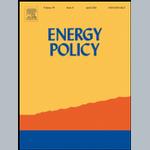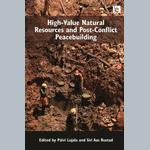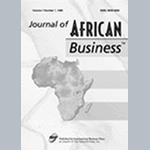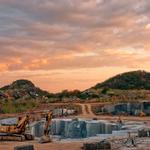Diversifying an oil rich economy: Why and how?
Since the 1960’s, revenue from the oil industry has secured the Norwegian welfare-state. Norway is the exception that proves the rule. Countries rich in natural resources score poorly on measures of democracy and good governance. In spite of gross national income from oil revenue, wealth is unevenly distributed and poverty widespread in many resource rich countries, for example Angola.
Diversification is claimed to be a strategy that efficiently counteracts the resource curse. So why do not resource rich countries diversify more? In a recently published article in Energy Policy where senior researchers at Chr. Michelsen Institute, Arne Wiig and Ivar Kolstad point to the challenges of diversification, they discuss how diversification can influence a country’s institutions positively.
Creating the right mix of industrial activity
Diversification is regarded as important to democratisation and good governance, but the benefits of diversification are sometimes overstated. A more diversified economy does not necessarily improve the institutions required to address a resource curse. According to Wiig and Kolstad, it is the pattern of industrial activity rather than diversification per se that affects governance and democracy.
For instance, diversification into land intensive sectors, like estate agriculture, does little to facilitate better governance. Land is an immobile resource, and hence easily taxable. A land-owning elite may therefore resist democratisation to avoid tax increase.
By contrast, diversification into more mobile and human capital intensive sectors is more likely to stimulate democratisation.
-Reciprocal dependence is one of the characteristics of knowledge-based industries. The costs of conflict are high in human capital intensive sectors, too high for the ruling elite to risk discontent and upheaval, says Wiig.
Diversification into more mobile and human capital intensive sectors is unlikely, because it will empower social groups that may challenge the local elite.
-It is not in the interest of the ruling elite to support the development of industrial sectors which could threaten their power base. This makes diversification difficult to attain. Thus relying on domestic policies to create the right mix of economic activity may be ineffective. If the ruling elite is to invest in new sectors, there is a need for international regulations that affect their incentives. A possible solution is to tax international oil trade, whilst giving manufactured products easier market access, says Arne Wiig.
From a curse to a blessing
The paper “If diversification is good, why don’t countries diversify more? The political economy of diversification in resource rich countries” is the first step in a large research project on the strategies of diversification. The objective is to explore how resource rich countries can turn the country’s natural resources into a blessing rather than a curse. The project is part of the CEIC-CMI cooperation agreement in Angola.
Future research projects will include country specific, as well as cross-country studies.
-What is there to learn? How does diversification become a success? The aim of this research project is to give advice on how to diversify in a way that will positively influence the country’s institutions, says Wiig.
Publications

If diversification is good, why don't countries diversify more? The political economy of diversification in resource- rich countries
Assessing the importance of human and social capital for poor entrepreneurs in Angola

Assigned corporate social responsibility in a rentier state: The case of Angola

Better the devil you know? Chinese foreign direct investment in Africa
Project


